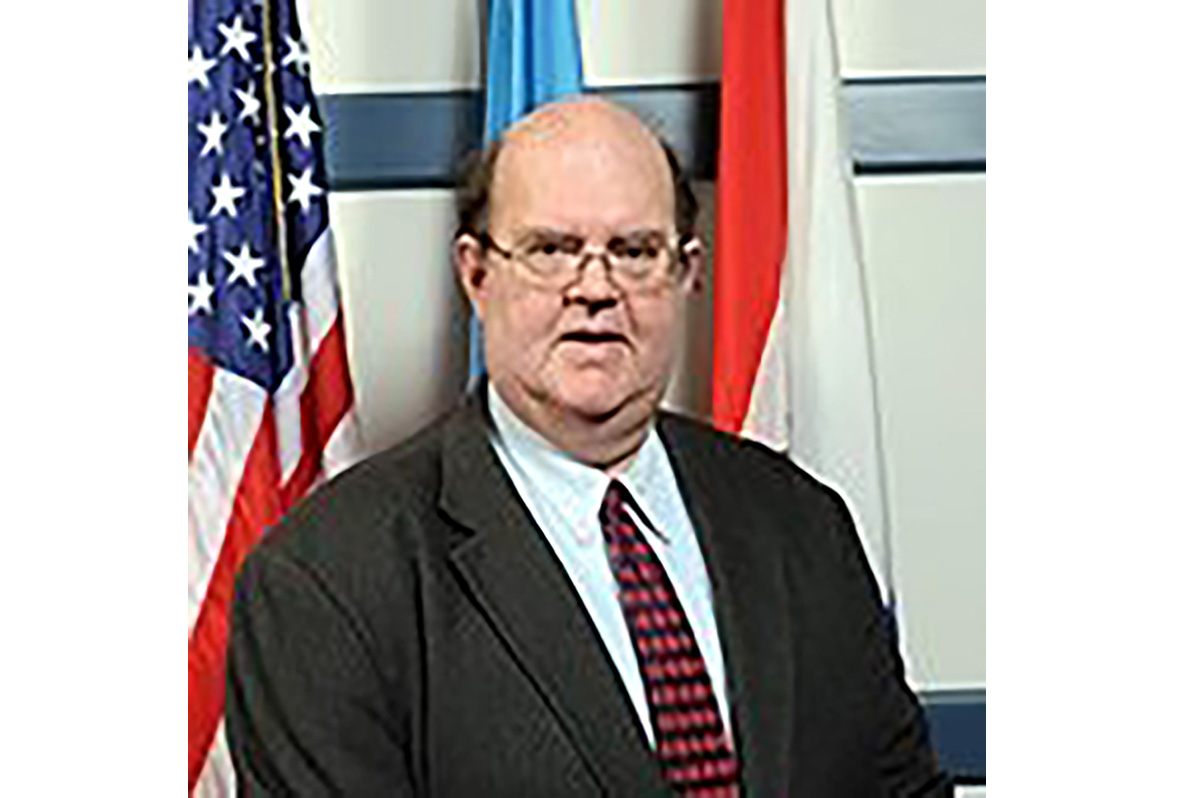Delaware
Delaware bill would ban ‘gay panic’ defense
Legislature has until June 30 to advance measure

Delaware may soon become the 16th state to ban the LGBTQ panic defense, in which defendants claim they panicked after learning someone was gay or transgender and injured or killed the victim.
It’s been used five times in Delaware and more than 400 times across the country, said St. Edward’s University professor W. Carsten Andresen, who tracks uses of the defense. The defense is usually used so that defendants can have their charges lessened – often from murder to manslaughter.
If Delaware House Substitutive Bill 1 passes, defendants can’t use that defense to be acquitted of their crime or get reduced charges.
“This defense is used by defendants to justify violent acts against LGBTQ individuals by claiming that their sexual orientation or gender identity poses a sudden threat to their safety,” Sussex Pride Director David Mariner said before the House Judiciary Committee. “This defense is nothing more than a thinly veiled attempt to excuse bigotry and hate crimes, and it has no place in our justice system.”
Scholars and advocates say it’s unknown how many times it’s been used because there is no single national place where the crimes are reported. Andresen said he probably only knows a quarter of the cases in which it has been invoked.
It’s hard to find out when it is used, Delaware lawyer Mark Purpura said, because it’s unlikely researchers will find cases where it has been used successfully because the decision won’t be appealed. Andresen agreed. He said he finds cases through media reports, internet posts, and court appeals.
The House does not seem to be aware of the cases in Delaware; Purpura said during testimony that he was unaware of any uses in Delaware.
The American Bar Association announced its support for LGBTQ+ panic defense bans in 2013. Many legal scholars support bans, but not all. Some argue there are better ways to eliminate the effectiveness of the defense than banning it.
Cynthia Lee, a law professor at George Washington University, was one of them until recently. She argued that defendants should have to explicitly say that they were shocked their victim was LGBTQ. That way, she argued, all the defendant’s cards would be on the table.
“When gay panic arguments are forced to take a covert turn — when they are not explicit or out in the open — they may actually be more effective than they would be if out in the open,” she wrote in 2017, citing a 1986 trial in which the defense called four Black teenagers “savages,” “predators,” and “vultures” but didn’t mention their race explicitly. The jury found the shooter not guilty on almost all the charges.
“The existing research on stereotypes and prejudice suggests that stereotypes, which are deeply entrenched in the subconscious, are triggered more readily when not made salient,” Lee wrote, adding that it’s more effective to educate people. She did not respond to a request for comment.
Asked about Lee’s concerns that lawyers would find a way around the ban Purpura agreed that it’s possible.
“It’s a risk,” he said. “If you’re a defense attorney, that could backfire.”
But, he said, doing nothing is far worse. If the jury hears the defense, he fears, it might resonate. Lee now agrees, writing in 2019 that making the bigotry clear isn’t enough to nullify the defense.
The most famous case of the gay panic defense followed the murder of Matthew Shepard, a gay college student in Wyoming. Aaron McKinney and Russell Henderson had offered Shepard a ride home, which he accepted. Instead of driving him home, the pair drove to a remote area and proceeded to rob and torture Shepard, then tied him to a fence and left him to die. McKinney’s lawyers claimed that Shepard made sexual advances toward him, and was driven to insanity in that moment, leading him to kill Shepard. The judge rejected the defense but allowed evidence portraying Shepard as an aggressive sexual deviant, Lee wrote. Shepard and Henderson were sentenced to two consecutive life sentences.
Morrison cited a 2015 case of the defense being used before the House Judiciary Committee, when Texas resident James Miller invited his neighbor Daniel Spencer over for a night of drinking and music. Miller claimed Spencer came on to him, so he stabbed Spencer in self-defense. Prosecutors argued that the blood at the crime scene didn’t match Miller’s version of events and it could very well have gone down the opposite way.
Either way, the jury sentenced Miller only to 10 years of probation and the judge tacked on six months in jail. Scholars have categorized the killing as using the gay panic defense.
Andresen keeps a private up-to-date database of LGBTQ panic defense uses, and the Williams Institute published its latest database in 2021. Andresen also found a 2018 Texas case in which Mark Daniel Lewis did not face trial after admitting he pushed Kenne McFadden, a transgender woman, into a river. He claimed she had groped him, according to local news reports. Prosecutors are taking a fresh look at the case after Insider found new evidence.
The only opposition so far to Delaware’s bill comes from Rep. Jeffrey Spiegelman, a Republican who represents the Townsend area. He asked why the bill only prohibits LGBTQ+ panic defenses and not those for religion or race. Purpura said he’s unaware of anyone invoking the panic defense after discovering someone’s race or religion.
Still, Spiegelman offered an amendment to the bill to prohibit all panic defenses based on race, religion, color, disability, sexual orientation, sex, age, gender identity, national origin, and a person’s ancestry. He did not respond to a voicemail.
Morrison, who introduced the bill, said the amendment “diminishes” the bill’s purpose.
“It takes the emphasis away from the fact that this is an issue of incredible importance to the LGBTQ+ community that affects the LGBTQ+ community, so we want to keep that spotlight,” he said in an interview.
The original bill, HB 142, was substituted for HS 1 to “make a legislator happy” and clarify that the bill does not ban mental illness from being used as a defense, Morrison said.
The substitution and re-introduction means the amendment attached to the original bill is gone, and Rep. Spiegelman did not respond to a voicemail asking if he will re-introduce it.
Most representatives on the House Judiciary Committee, including Spiegelman, voted to advance the bill out of committee. Rep. Bryan Shupe did not vote either way, saying he needed more information.
The bill currently has 22 co-sponsors. There is one Republican in the group, Rep. Michael Smith, but Purpura said he doesn’t expect bipartisan support, which he said is “disappointing.”
The biggest challenge to the bill may be the time crunch before the Delaware Legislature goes on vacation on June 30. The Delaware House and Senate are currently scheduled to consider 17 bills and 33 more are on the House’s list of bills ready to be put on the agenda. And even more bills will be voted out of committee soon and will take their place on the ready list.
Delaware’s House Speaker, Pete Schwartzkopf, will decide where – or whether – to put the bill on the agenda for the House to vote on it. If the House passes it, it will go to a Senate committee and, if passed out of the committee, will go to the Senate floor for a vote and end up on the governor’s desk if passed. Schwartzkopf’s legislative assistant did not return a voicemail asking whether he will fast track the bill.
But the bill has plenty of time to go through all the motions – the legislature’s last day is June 30. After that, the bill would have most of next year to go through the motions.
Delaware
Delaware’s first openly gay elected official dies at 66
John Brady remembered as dedicated public servant

John Brady, the first openly gay elected official in Delaware, passed away in his home on Aug. 10 at age 66 after battling a long illness.
Brady was a deputy attorney general and was elected to three Sussex County offices: register in chancery, recorder of deeds, and clerk of the peace.
While clerk of the peace, Brady performed the first legal same-sex marriages in the state starting in July 2013. He told a local radio station just last week that he performed more than 400 marriages in his four-year term.
“John married my husband and me on the beach in Rehoboth 11 years ago,” said Washington Blade editor Kevin Naff. “He took great time and care in crafting our nuptials. It was a beautiful moment we will never forget. John was a pioneer for the LGBTQ community in Delaware, a dedicated public servant, and a gentleman. He will be missed.”
The day before he passed away on Aug. 9, former Speaker of the House Pete Schwartzkopf and former Lt. Gov. Bethany Hall-Long presented Brady with Delaware’s highest civilian honor for individuals who meet a high standard for community service, the Order of the First State.
Brady retired in 2024 after 32 years as a member of the Delaware Bar and 16 as a state employee. He was also active in the Eagle Scouts, working as a Scout leader and professional scouter. He received the Founder’s Award in 2023, one of the highest honors.
“Delaware mourns the passing of John Brady, a true public servant, trailblazer, and dear friend to many,” Gov. Matt Meyer wrote in a statement on Aug 11. “From his dedication to justice and service through the law to the barriers he broke as Delaware’s first openly gay elected official, John fought with compassion to improve our state and touched countless lives in the process. Lauren’s and my prayers are with John’s family and friends, as we all mourn his passing and celebrate his extraordinary life.”
Delaware
Del. att’y gen’l among plaintiffs suing Trump over access to care for trans youth
Coalition of states filed motion last week

A coalition of more than a dozen states, including Delaware, filed a lawsuit on Aug. 1 to block the Trump administration’s efforts to restrict access to medically necessary care for transgender youth.
Filed in federal court in Massachusetts, the lawsuit challenges Executive Order 14187 from January, in which President Donald Trump refers to gender-affirming care such as puberty blockers, hormone therapy, and surgeries as “mutilation.” It declares that the policy of the United States will be to “not fund, sponsor, promote, assist, or support the so-called ‘transition’ of a child from one sex to another, and it will rigorously enforce all laws that prohibit or limit these destructive and life-altering procedures.”
The suit argues that the EO violates the Administrative Procedure Act (APA) and the Tenth Amendment by asserting federal overreach into state-regulated medical and healthcare decisions.
“It becomes clearer every day that there simply is no bottom to this administration’s cruelty,” said Attorney General Kathy Jennings in a press release. “With his agenda failing and his popularity plummeting, the president is turning to time-tested tactics of demagogues: turning vulnerable people into scapegoats, obsessing over their private lives, and intruding on medical decisions. These stunts make kids into political props and do nothing to help Americans. They are despicable, dangerous, and illegal.”
Gov. Matt Meyer recently signed an executive order making Delaware a shield state for providers of gender-affirming care. It prohibits state agencies from cooperating with investigations, subpoenas, or legal actions by other states against individuals or providers involved in care that is legal in Delaware.
According to the press release, providers in some states have begun to reduce or eliminate services due to federal actions. Nemours Children’s Hospital in Delaware is no longer providing gender-affirming care to new patients.
Medical experts and nearly every major national medical association endorses and supports the availability of gender-affirming care for transgender young people.
“Empirical evidence has demonstrated that trans and nonbinary gender identities are normal variations of human identity and expression,” the American Medical Association said in 2021.
Plaintiffs include the attorneys general of California, Connecticut, D.C., Hawaii, Illinois, Maine, Massachusetts, Maryland, Michigan, Nevada, New Jersey, New Mexico, New York, Rhode Island, and Wisconsin, and the governor of Pennsylvania.
Delaware
Intersex actor, advocate River Gallo attending screening event in Delaware
Afternoon includes screening of ‘Every Body’ and Q&A

Intersex actor and advocate River Gallo will attend a screening of their film “Every Body,” followed by a Q&A in Wilmington, Del. this Saturday.
River Gallo is a Salvadoran-American filmmaker, actor, writer, model, and intersex rights activist from New Jersey. They wrote, directed and starred in the 2024 film “Ponyboi,” the first film to feature an openly intersex actor playing an intersex person. Intersex refers to individuals who are born with reproductive or sexual anatomy that doesn’t fit the typical definitions of male or female.
The movie that will be shown at Theatre N in Wilmington on July 26 at 4 p.m., “Every Body,” documents the lives of three intersex people, including Gallo. Following the film, Gallo will engage in a Q&A to discuss their life as the child of immigrant parents, activism, and film career. The event is hosted by Orgullo Delaware and the Delaware Sexuality and Gender Collective. ACLU Delaware and InterAct are partners in the event.
Noah Duckett co-founded Orgullo Delaware in 2019 with his mom, Julissa Coriano, to provide resources for Latino LGBTQ Delawareans and their families.
Duckett said that a lot of times, intersex people are left out of conversations surrounding the LGBTQ community. He hopes to pack the house for this event and emphasize how special it is that Gallo will be there in-person to connect with the audience about their work.
“I’m really hoping that people will be able to gain more of an understanding of what it must be like to navigate the world as an intersex person,” he said.
Mike Brickner, executive director of the ACLU of Delaware, seconded that the intersex community typically does not get as much spotlight within the LGBTQ umbrella.
“I hope that there are members of the intersex community that do come, that they also feel seen and acknowledged,” he said. “There’s often so few spaces for people to talk about that community and to really share about their experiences, so I do hope that visibility brings some level of comfort to folks.”
InterAct is an organization dedicated to the rights of intersex youth. It was initially founded with the goal of bringing legal action against the practice of non-consensual surgeries on intersex infants, according to Maddie Moran, the director of communications.
Moran said intersex people have historically been victimized and targeted by the government, by medical institutions, and by legal institutions. They said the average politician can’t even define intersex.
“Many of the average people in society don’t know that intersex people exist, and don’t understand that sex is not as strict as an XX and XY binary. It’s so much more than that,” they said.
Moran said they came out publicly as intersex before working with InterAct, but suddenly didn’t feel so alone after joining. They said that visibility is more critical now than ever and Gallo is just one of the people stepping up to be that visibility in the intersex movement.
“To intersex young people out there, you’re really not alone,” Moran said. “There are so many people who share your experiences, who share similar stories to yours, and regardless of what you’ve been told, there are many, many people out there like you.”
Brickner has come to the conclusion that the only way to get through the country’s current moment is through real and authentic solidarity.
“We have to acknowledge other people’s identities,” he said. “We have to have events like this that acculturate people to those identities, and that’s how we really create understanding and true, authentic solidarity with our broader community, is if people understand one another and see their lived experiences.”



















